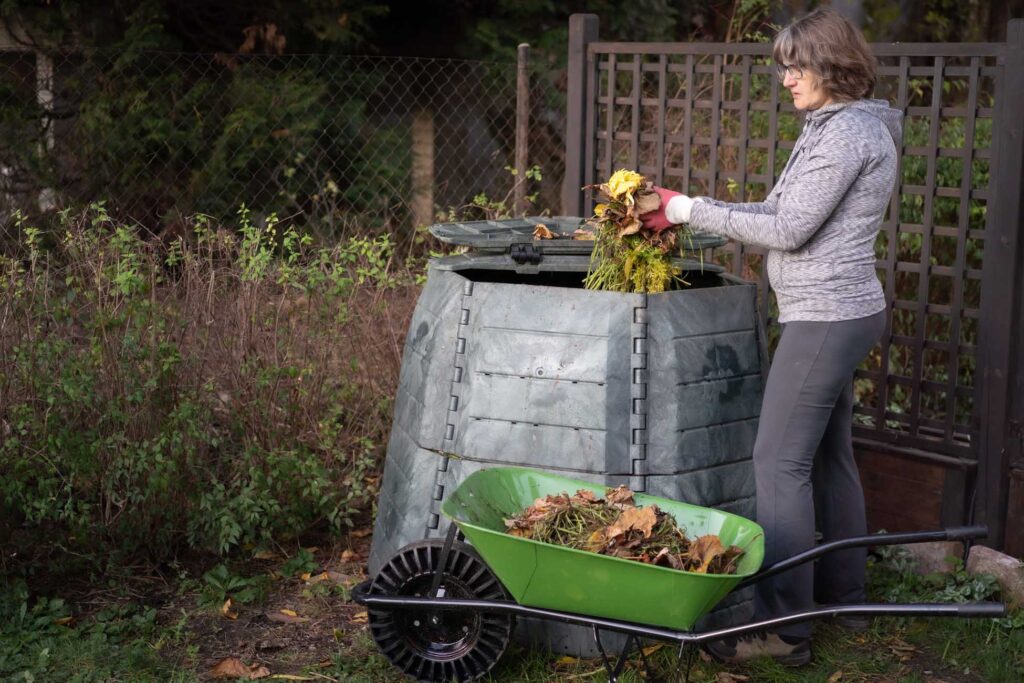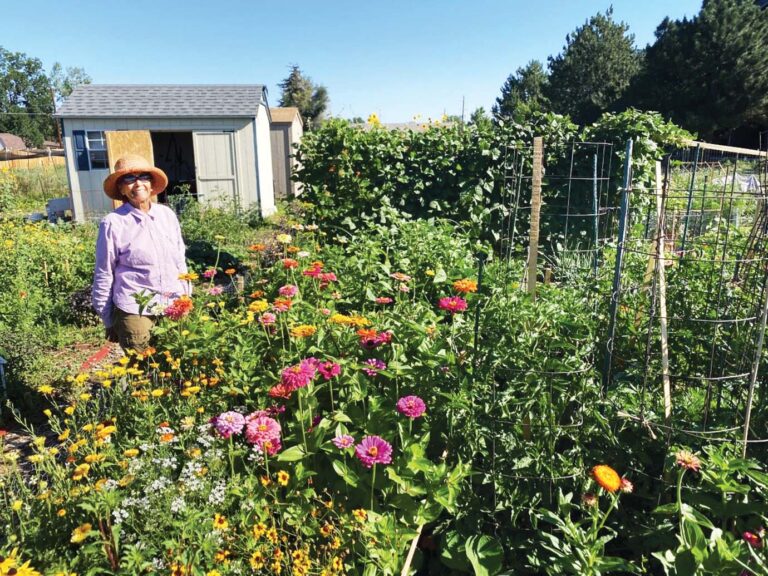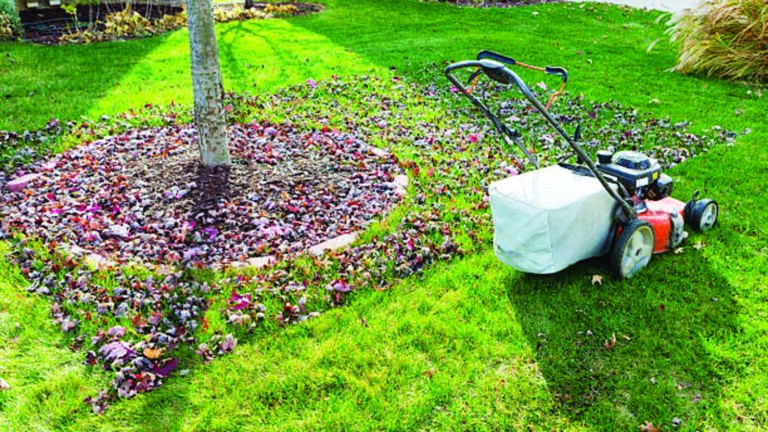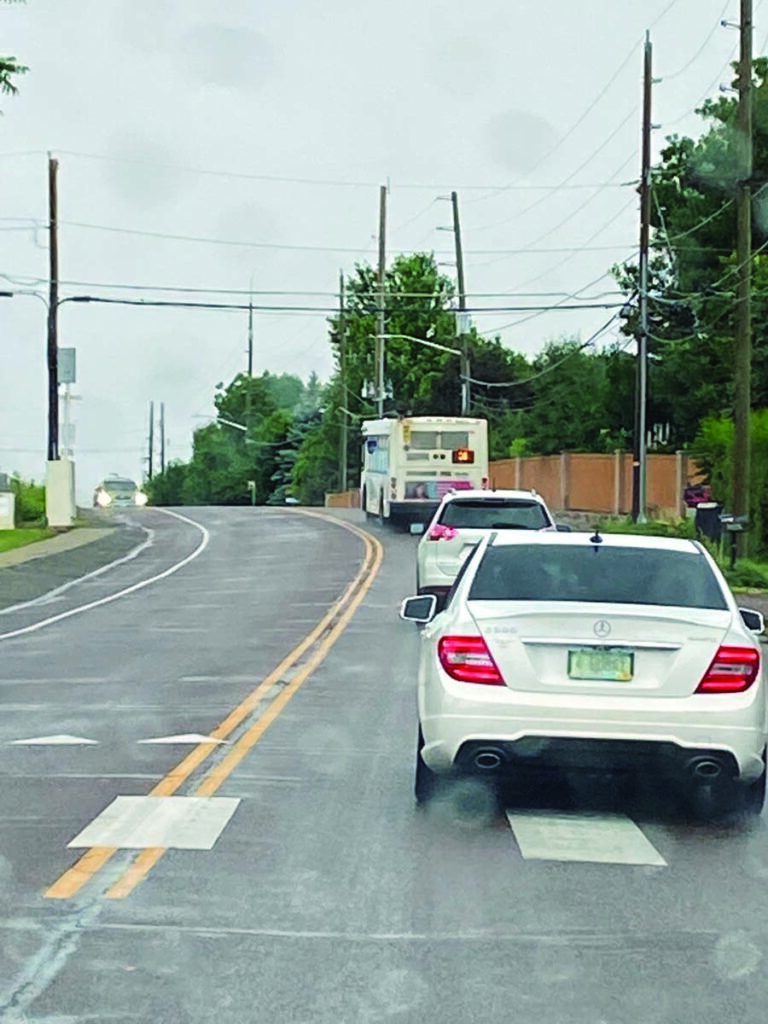Composting is an easy and often inexpensive way to live sustainably. If you don’t compost yet, knowing where to start can be overwhelming. We’ve outlined a few options of what is available in Wheat Ridge, some tips to help you choose, and share one resident’s journey to compost.
It first helps to understand compost and composting. Compost is the result of an intentional decomposition process, made from food, yard and animal waste. Composting is a system that mimics this natural process. As a system, it requires protocol and maintenance. To produce good compost, the ingredients must be right, like making a chocolate cake, if the ingredients aren’t tasty, the cake won’t be either.
Composting creates a cycle like nature where nutrients are returned to the earth via decomposition, creating food for the next generation. Compost increases soil health and water absorption, which saves water and grows healthier food. With compost we are healthier and the environment benefits. Win-win.
What’s available in Wheat Ridge?
Composting is supported in the City of Wheat Ridge’s 2035 Vision Statement and city council recently amended residential codes to permit composting, so long as it doesn’t become a nuisance with odors or attract wildlife or pests.
Home Compost Methods
There are countless ways to compost. Different methods of backyard composting include hot (with oxygen) and cold (without oxygen) methods that work in a pile, a container or underground. Other methods include Vermicomposting (with worms), and bokashi (fermenting). Every compost system requires time, space and management. While decomposition happens naturally, creating compost requires attention.
Home Compost Services
If time, space or thought of interacting with your waste doesn’t fit with your lifestyle, you can hire a compost service. Wheat Ridge is fortunate to have Scraps, the longest-running short-haul, woman-owned waste aversion business in the Front Range.
Scraps offers two subscription services. A weekly home pick-up service that collects up to six gallons of organic waste and limited yard debris. Through a partnership with the city, they also offer a drop off service members can access any time at City Hall and the Recreation Center, Scraps members receive all they need to start composting immediately. Check their website scrapsmilehigh.com for prices and details. Tom Dodd, Operations Director at Scraps says, “Buying a compost service is the easiest way to start living a sustainable lifestyle.”
When deciding on your compost method. Consider the following:
Space: What is happening in your yard? Do you have room for a four-square-foot pile (minimum), container or hole?
Time: Do you have an extra two to four hours per month to maintain your compost?
Desire: Are you inspired by the transformation of waste into nutrients? Are you inclined to interact with biological processes? Do you like physical labor?
Need: Do you have a way to use the finished compost?
Stuff: How much and what kind of organic waste do you have?
Choosing the best system boils down to resources, like time, space and money, and personal preferences of how much “biology” you can handle. Composting can be enjoyable. It’s an alchemic process of transformation that provides an opportunity for physical labor. Which can be rewarding, for others it is not possible or necessary. The best system is the one you use!
One Resident’s Journey
Linda chose to enroll in the Scraps drop-off subscription, because her property shares a border with open space land. Although she has plenty of space, her concern was attracting wildlife with the food waste. While critters are part of the natural process of decomposition, in an urban setting, a scenario like this could quickly get out of hand.
Linda describes her process as taking little time and fitting easily with her schedule. She created a system that works perfectly for her lifestyle. She uses a compostable bag in her kitchen to collect their food waste. Once full, she transports it in another more durable plastic (but still reusable) bag. She drops at the rec center, centrally located for her, so she can take a bag every couple of days.
“It never takes more than a minute or two to drop off and continue on,” she says.
If she’s not going out for a few days she will put a bag in her freezer until she can make it out again, usually it fits in her schedule every few days. She is amazed by what can be composted weekly.
While the service may not be cheap, it’s worth it.
“It adds value to the community, and it feels good to do something to help the environment. Composting is an easy way to reduce trash going into landfills.”
Go green without spending a penny tip:
Sort your trash whether you intend on composting, recycling or not. The process will provide you with valuable information, like what you are throwing out, which could save you money. The best way to go green is through awareness, which doesn’t cost anything. And with the money you do spend, buy things that can be composted or recycled. Simply, use how you spend your time and money to create a better world.
Krystyn (YY) Dennis is Wheat Ridge Parks & Recreation’s Garden Coordinator.






